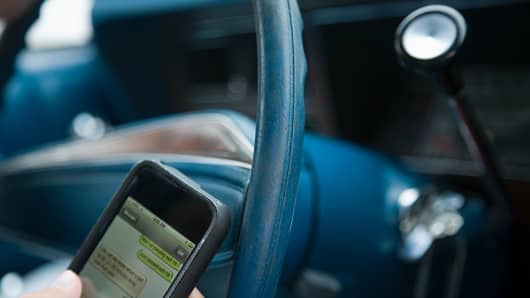Hands free does not equal distraction free.
The study was conducted by measuring the cognitive results of 38 people between the ages of 18 and 30. The participants had an average of 6.9 years driving experience.
To see how people are distracted behind the wheel, the participants were measured in three different experiments performing a baseline task.
The participants' reaction time was then measured as they did the following: Listening to a radio; listening to a book on tape; talking with a passenger seated next to them; talking on a cell phone both holding the device and hands free; using speech to text hands free and while performing a math and memorization task.
The participants cognitive reaction was measured first while not driving, then in a simulator and finally while behind the wheel.
The results were clear: even those using hands free technology to talk or communicate with others while driving were far more distracted than drivers not using cell phones behind the wheel.
The study is especially critical of speech-to-text in-car communication systems.
(Read More: GM's Wi-Fi Move Brings the Connected Car Closer)
According to the authors: "There are in-vehicle activities, such as using a speech-to-text system to send text or e-mail messages, which produced a relatively high level of cognitive distraction."
Hands Free Communication Systems Growing
The study is particularly timely given the growing availability of hands-free communication systems in new cars. Automakers have made the systems available as options for buyers who want the latest way to stay in touch while driving.
Those systems are especially popular since many states have banned drivers from holding cell phones behind the wheel.
As a result, automakers have embraced the message that drivers who keep their hands on the steering wheel and eyes on the road are going to be less at risk of being involved in an accident.
Call to Action
With automakers and tech firms rolling out increasingly sophisticated in-car communication systems, the AAA is worried about distracted driving growing.
AAA President and CEO Robert L. Darbelnet is blunt in his call for automakers to slow the development of in-car communication systems. "It's time to consider limiting new and potentially dangerous mental distractions built into cars, particularly with the common public misperception that hands-free means risk-free," he said.
(Read More: Car Sharing Hits Some Bumps In The Road)





